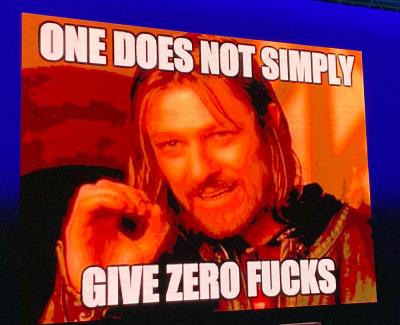LDI/Live Design creative director Ellen Lampert-Gréaux introduced opening keynote speaker and screens producer, and industry expert Laura Frank, by saying “If it moves and you can see it, she knows how to do it."
Frank, founder, executive director, and creative advocate of frame:work definitely knows her way around most technical aspects of live entertainment, having started as a lighting programmer and moving light technician and moving into digital media as media server technology evolved. Frank is at the leading edge of media operations and media delivery workflow, and is the author of two text books on the subject, Real-Time Video Content for Virtual Production, Mixed Reality and Live Entertainment: A Learning Roadmap for An Evolving Practice, and Screens Producing And Media Operations, Advanced Practice for Media Server And Video Content Preparation, (more info and purchase options here), but despite this, declared that, “We still haven’t figured out best practices because real-time content use is still being invented.”
Frank’s topic, Fearless Collaboration: Why the Next Generation Is Essential For Success, is a call to action for the current generation of live content professionals to undertake a commitment to mentoring and training, and to the next generation to understand, and embrace, the demands of the discipline. The main issue, according to Frank, is a decreasing talent pool for an expanding field, and while academic programs are fast catching up to provide training, what the industry needs is experienced talent. "Right now,” she says, “We are hiring technical people who have never worked on a production.”
One solution she suggests for giving candidates an understanding of the requirements of the discipline (and improving the capabilities of professionals in many other industries as well) is to make everyone take a theatre class.
She says, “In the US, education has been devalued by an emphasis on standardized test scores not problem solving and creativity. A theatre education reinforces group success versus individual success, and leads to the realization that a group can often find not just one answer to a problem, but a variety of right answers. We are experts at creative collaborative problem solving.”
Frank goes on to say that because of this problem-solving mindset, real-world deadlines, and the need to work as a team, it is a myth that theatre education is irrelevant. She says, “I would argue everyone should take a theatre course in order to graduate. If everyone worked on at least one high school musical the world would be a nicer place, don’t you think?”
Here’s a short list of the nontechnical skills required to work in this new discipline where practitioners are tasked with educating clients, working with cutting-edge technology which may not be reliable yet, and gaining experience while learning each new innovation and applying it creatively.
- Improvisation
- Project management
- Working on a budget
- Dealing with different human beings
- Understanding the human condition
- Doing what needs to be done when it needs to be done
- Hard work
- Making difficult choices
- Presentation skills
Frank highlighted a few programs helping to train the next generation:
FRAY Dev from UK-based FRAY Studio
HQ PRO
A comprehensive educational platform for immersive media, interactive tech, and TouchDesigner developers.
The frame:work New Talent List
A curated list of students from international academic programs, that provide curriculum in skills vital to video design and pixel-based entertainment technology production. Applications are currently open.
Additional programs and information can be found here.
Frank finished her keynote with a reminder of her well-known personal philosophy of ZFG—Zero Fucks Given. However, she cautions, “Let's be clear about this practice, “This philosophy is about taking risks and thinking, what is the worst that can happen? Well, you can embarrass yourself at work, not get your dream job, or someone realizes you don't know what you're talking about. I promise you, I'm doing all three of those things for at least one person in this room right now. BUT, if I don't do these things, how do I learn? And how do I motivate someone else to prove me wrong and thereby make the practice better for everyone? How do we advance the growth of the entertainment production community unless we take those risks?”

Frank highlights the important distinction between zero fucks given and the complete opposite, which is “I don’t give a shit.”
“ZFG as a philosophy is open and full of hope and inspiration, IDGAS is an angry dead end. ZFG means you invest so much in what you are doing but still allow yourself to be vulnerable on your quest.”